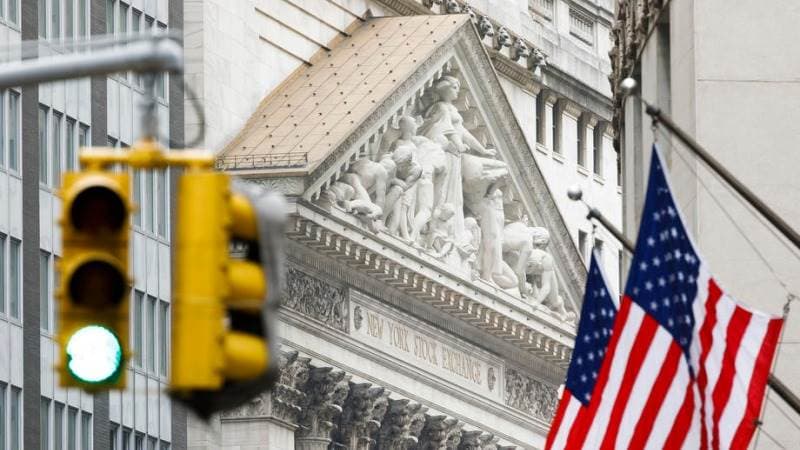We're loading the full news article for you. This includes the article content, images, author information, and related articles.
International market volatility, driven by a frenzied tech rally and uncertain US interest rate policy, presents a mix of opportunities and significant risks for the Kenyan shilling, foreign investment, and the Nairobi Securities Exchange.

NAIROBI, Kenya - Global markets exhibited mixed performance on Tuesday, 4th November 2025, as a massive rally in technology stocks, fueled by multi-billion dollar investments in Artificial Intelligence (AI), collided with investor anxiety over a potential market bubble and unclear signals on future interest rate cuts from the United States Federal Reserve. These international developments are creating significant ripple effects for the Kenyan economy, influencing everything from the stability of the shilling to the flow of foreign capital into the nation's burgeoning tech sector.
Asian markets were turbulent in Tuesday trading. While Japan's Nikkei 225 index saw a downturn of 0.36%, Hong Kong's Hang Seng index posted a modest gain. China's Shanghai Composite index also experienced a slight dip. This volatility follows a period of immense growth in global equities, largely concentrated in a handful of technology giants. The rally has been supercharged by massive capital injections into AI, exemplified by OpenAI's recent $38 billion cloud computing deal with Amazon Web Services, announced on Monday, 3rd November 2025. This deal is the latest in a series of huge partnerships for the ChatGPT creator, following major agreements with Microsoft, Oracle, and Nvidia.
For Kenya, the decisions made by the US Federal Reserve are of critical importance. A recent report from October 2025 highlighted that the Fed is anticipated to continue its policy of rate cuts to navigate a cooling American labor market. Such cuts typically weaken the US dollar, which can ease pressure on the Kenyan shilling. A stronger shilling lowers the cost of key imports like fuel, machinery, and medicine, potentially helping to curb domestic inflation. As of Monday, 3rd November 2025, the shilling held steady at approximately 129.15 to the US dollar.
Furthermore, lower interest rates in the US make American assets less attractive, potentially driving international investors toward emerging markets like Kenya in search of higher yields. This could boost demand for local bonds and equities on the Nairobi Securities Exchange (NSE). However, the path of the Fed's policy remains a point of contention among its officials, creating uncertainty. Persistently high US inflation, which stood at 3.0% in the year to September 2025, complicates the central bank's decisions and could delay further rate cuts, posing a risk to the shilling and increasing Kenya's dollar-denominated debt burden.
In contrast to the US, the Central Bank of Kenya (CBK) has been in a monetary easing cycle. In its October 2025 meeting, the Monetary Policy Committee lowered the benchmark lending rate to 9.25% to stimulate private sector activity, as headline inflation remained within the target range, standing at 4.6% in September.
Kenya's technology sector has become a primary magnet for Foreign Direct Investment (FDI), recently surpassing traditional sectors like banking and manufacturing. According to the Kenya National Bureau of Statistics' 2024 Foreign Investment Survey, FDI into the tech sector surged to KES 64.7 billion in 2024, accounting for over a quarter of total inflows. Preliminary data for the first half of 2025 showed inflows of KES 38 billion, keeping the sector on track to retain its top position. This growth is partly attributed to regulatory reforms, including the removal of a rule requiring foreign tech firms to cede 30% ownership to local partners.
A global downturn in the tech sector or a sudden shift in investor sentiment could, therefore, have a pronounced impact on these crucial capital flows. While the NSE has shown remarkable resilience, with investor wealth rebounding significantly in 2025, it is not immune to global shocks. The market capitalization reached KES 2.78 trillion by the end of the third quarter of 2025, a four-year high, despite significant foreign investor outflows. Local investors have stepped in to fill the gap, but a global credit crunch sparked by a tech bubble burst could dampen this domestic confidence. As of Monday, 3rd November 2025, the NSE's market capitalization stood at KES 2.99 trillion.
Analysts advise Kenyan investors and policymakers to closely monitor the global tech landscape and the US Federal Reserve's upcoming decisions. The interplay between the global AI-driven tech boom and international monetary policy will be a key determinant of Kenya's economic trajectory in the coming months.
Keep the conversation in one place—threads here stay linked to the story and in the forums.
Sign in to start a discussion
Start a conversation about this story and keep it linked here.
Other hot threads
E-sports and Gaming Community in Kenya
Active 9 months ago
The Role of Technology in Modern Agriculture (AgriTech)
Active 9 months ago
Popular Recreational Activities Across Counties
Active 9 months ago
Investing in Youth Sports Development Programs
Active 9 months ago